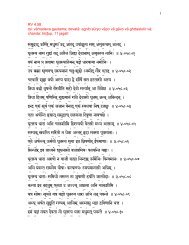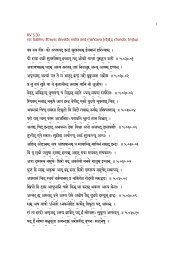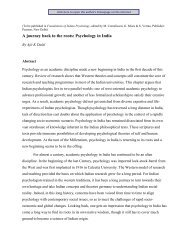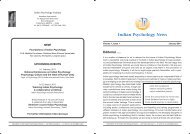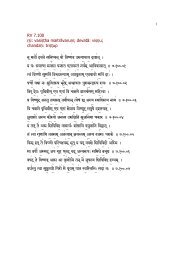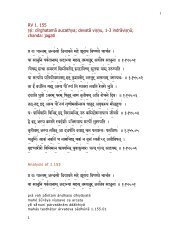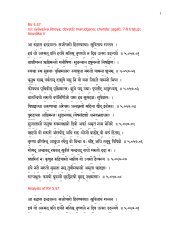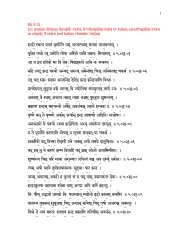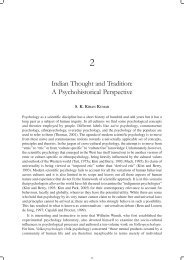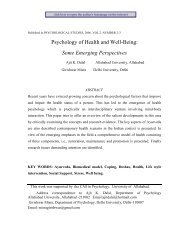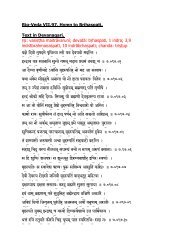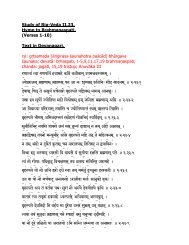core and Context -Fi.. - Indian Psychology Institute
core and Context -Fi.. - Indian Psychology Institute
core and Context -Fi.. - Indian Psychology Institute
Create successful ePaper yourself
Turn your PDF publications into a flip-book with our unique Google optimized e-Paper software.
potential sources of distortion. IP extensively deals with the ways of h<strong>and</strong>ling human<br />
suffering <strong>and</strong> lead one on a path of growth, which does not create any hurdle for other cotravelers.<br />
The techniques of yoga <strong>and</strong> meditation have contributed significantly toward self<br />
control of mind <strong>and</strong> feelings. Such techniques are diverse to suit people of various<br />
orientations. Thus, Bhakti (devotion), Karma (action) or Jnana (knowledge leading to<br />
renunciation) yoga can be used by any person depending upon his or her temperament or<br />
dispositional orientation (svabhāva) (see Bhawuk‟s article on methodology in this issue).<br />
The theories <strong>and</strong> practices of Āyurveda are fine examples of how the mundane can be<br />
blended with the transcendental. The plurality in constitution, action <strong>and</strong> context is<br />
enunciated with the help of the theory of trigunas of sattva, rajas <strong>and</strong> tamas.<br />
However, it should not be misconstrued that IP is only concerned with inner<br />
transformation <strong>and</strong> does not deal with the mundane problems of this world. It has a vision of<br />
a social order in which conflict, violence, injustice <strong>and</strong> exploitation have no place. It offers<br />
mechanisms to address the problems arising from human greed, attachment <strong>and</strong> egotism,<br />
which culminate in poverty, injustice <strong>and</strong> pain. IP is equally concerned with the challenges<br />
of education, mental <strong>and</strong> physical health, <strong>and</strong> social institutions <strong>and</strong> have offered alternative<br />
models <strong>and</strong> methods. IP does not dismiss the empirical approach in these areas but by being<br />
positioned at an appropriate level provides a broader perspective within which its findings<br />
would make sense.<br />
What is Not the Core of <strong>Indian</strong> <strong>Psychology</strong>?<br />
As mentioned earlier a distinction is generally made being between <strong>Indian</strong><br />
<strong>Psychology</strong> (<strong>Psychology</strong> of <strong>Indian</strong> origin) <strong>and</strong> <strong>Psychology</strong> in India (academic/western<br />
psychology in India), though there is some overlap in the usage of these two terms. Part of<br />
the problem stems from the fact that in other social sciences such a distinction is of little<br />
consequence. For example, <strong>Indian</strong> sociology or <strong>Indian</strong> philosophy are same as sociology or<br />
philosophy in India. These terms were coined by the British scholars who were engaged in<br />
studying <strong>Indian</strong> society <strong>and</strong> philosophy in the later part of Eighteenth century. Moreover,<br />
<strong>Indian</strong> sociology <strong>and</strong> <strong>Indian</strong> Philosophy as academic disciplines have a long history of more<br />
than hundred <strong>and</strong> fifty years <strong>and</strong> there is no misconception about their subject matter. This is<br />
not so in the case of IP. <strong>Psychology</strong> in India has a history that spans the beginning of the last<br />
Century, but in comparison IP has yet to reestablish itself in the academic portals.<br />
Psychological knowledge has a long tradition <strong>and</strong> a clear identity as an independent field of<br />
inquiry. As mentioned earlier, though there were writings in this area for many decades, it<br />
has emerged as a domain of serious research in academia only in last decade or so. We still<br />
do not have any critical historical document about the beginning <strong>and</strong> growth of IP, though<br />
we have many writings in the case of psychology in India. Another reason for confusion<br />
about the usage of the terms is that courses on IP were introduced in many <strong>Indian</strong><br />
universities (e.g., BHU, Mysore, Jodhpur, Andhra Universities) in the mid-sixties. These<br />
courses were primarily imported from philosophy <strong>and</strong> their subject matter <strong>and</strong> pedagogy<br />
were incompatible with the general ethos of psychology departments, which was more tuned<br />
to laboratory research. Courses on IP therefore could not survive for long <strong>and</strong> within a<br />
decade they were withdrawn from most places. Incidentally, the view still persists that IP is<br />
nothing but <strong>Indian</strong> Philosophy. This is yet another reason why IP is not part of the academic<br />
curriculum at most of the <strong>Indian</strong> universities.<br />
In this backdrop it is quite natural to encounter many misconceptions about what IP<br />
st<strong>and</strong>s for, or does not st<strong>and</strong> for. To define IP as psychological knowledge rooted in <strong>Indian</strong><br />
cultural heritage <strong>and</strong> scriptures dating back to more than three millennia <strong>and</strong> relevant to the<br />
contemporary world is not enough. As a growing science of <strong>Indian</strong> origin IP is often held as<br />
a conglomeration of several, sometimes even contradictory fields of investigation. IP<br />
14



